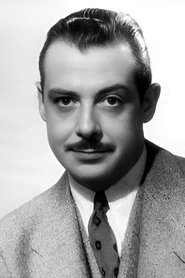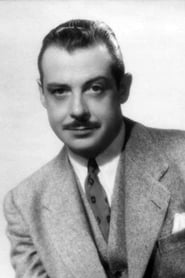Profil Görüntüleri
| Doğum yeri | Ixelles, Brabant, Belgium |
| Doğum günü | 1905-12-25 |
| Ölüm | 1970-11-02 |
| Ayrıca şöyle bilinir | Fernand Mertens Fernand Gravet Фернан Граве |
Oy
Fernand Gravey (25 December 1905 in Ixelles (Belgium) – 2 November 1970 in Paris, France), also known as Fernand Gravet in the United States, was the son of actors Georges Mertens and Fernande Depernay, who appeared in silent films produced by pioneer Belge Cinéma Film (a subsidiary of Pathé). Gravey started performing at age five under his father's direction. Before World War I, he received an education in Britain and could speak both French and English fluently, something which became useful in his movie roles. During the war, Gravey served in the British Merchant Marine Corp. In 1936, he married the French actress Jane Renouardt, who was 15 years his senior. They remained together until his death on 2 November 1970 of a heart-attack. Jane died on 3 February 1972. They had no children. Gravey performed in four films in 1913 and 1914 (as Fernand Mertens), but his first film of importance was L'Amour Chante, released in 1930. In 1933, he made Bitter Sweet, his first English language movie, which became more famous in its 1940 incarnation with Jeanette MacDonald and Nelson Eddy. In 1937, after several more French and British movies, Gravey went to Hollywood, where the spelling of his last name was altered to Gravet, and he became the focus of a rather extensive Hollywood publicity campaign (instructing moviegoers to pronounce his name properly: "Rhymes with Gravy"). Unfortunately for Gravey, he was offered only standard parts, the type of Gallic-lover roles that Louis Jourdan played in the 1950s and 1960s. The first two films he made in Hollywood were for Warner Brothers: The King and the Chorus Girl (1937), with Joan Blondell and Jane Wyman, and Fools for Scandal (1938), with Carole Lombard and Ralph Bellamy. Gravey then signed with Metro-Goldwyn-Mayer and was cast as Johann Strauss in the expensive biopic The Great Waltz, with Luise Rainer and Miliza Korjus. MGM next planned to star Gravey in a film version of Rafael Sabatini's adventure novel Scaramouche, but instead he returned to France just before the Nazi occupation began. Although he had agreed to appear in German-approved French films, Gravey was an underminer of the invaders as a member of the French Secret Army and the Foreign Legion. At the end of the war, Gravey was considered a war hero, and continued to be featured in French productions such as La Ronde (with Danielle Darrieux), and Royal Affairs in Versailles (1954). Among his last English language performances were How to Steal a Million (1966), Guns for San Sebastian (1968) and The Madwoman of Chaillot (1969), in which he played the police inspector. Source: Article "Fernand Gravey" from Wikipedia in English, licensed under CC-BY-SA 3.0.
Oyuncu
| 1976 | That's Entertainment, Part II as (archive footage) |
| 1971 | L'explosion as Labrize |
| 1971 | Pas moral pour deux sous as Daniel Wilde |
| 1970 | Promise at Dawn as Jean-Michel Serusier |
| 1970 | Les Caprices de Marie as Captain Ragot |
| 1969 | The Madwoman of Chaillot as Police sergeant |
| 1968 | La Bataille de San Sebastian as Governor |
| 1966 | Hırsız Aşıklar as Grammont |
| 1965 | La dama de Beirut as Dr. Castello |
| 1961 | Les croulants se portent bien as François Legrand |
| 1958 | Totò a Parigi as Il dottor Duclos |
| 1958 | L'École des cocottes as Stanislas de La Ferronière |
| 1958 | Le Temps des œufs durs as Raoul Grandvivier |
| 1957 | La Garçonne as Georges Sauvage |
| 1956 | Mitsou ou Comment l'esprit vient aux filles... as Pierre Duroy-Lelong |
| 1956 | Courte-tête as Olivier Parker, le faux entraîneur hippique, escroc |
| 1955 | Treize à table as Antoine Villardier |
| 1954 | Si Versailles m'était conté as Molière |
| 1953 | L'età dell'amore as Padre di Andrea, presidente del tribunale |
| 1953 | Mon mari est merveilleux as Claude Chatel |
| 1952 | Le Plus Heureux des hommes as Armand Dupuis-Martin |
| 1951 | Ma femme est formidable as Raymond Corbier, sculpteur et mari de Sylvia |
| 1950 | Gunman in the Streets as Commissioner Dufresne |
| 1950 | Le Traqué as Commissioner Dufresne |
| 1950 | La Ronde as Charles Breitkopf, son mari |
| 1950 | Mademoiselle Josette, ma femme as André Ternay |
| 1949 | Du Guesclin as Bertrand du Guesclin |
| 1947 | Capitaine Blomet as Blomet |
| 1946 | Il suffit d'une fois as Jacques Reval |
| 1945 | Paméla as Paul Barras |
| 1944 | La Rabouilleuse as Colonel Philippe Brideau |
| 1943 | Domino as Dominique |
| 1943 | Le Capitaine Fracasse as Baron de Cigognac |
| 1942 | La Nuit fantastique as Denis |
| 1942 | Romance à trois as Charles |
| 1941 | Histoire de rire as Gérard Barbier |
| 1939 | Paradis perdu as Pierre Leblan |
| 1939 | Le Dernier Tournant as Frank Maurice |
| 1938 | Breakdowns of 1938 as Rene (archive footage) (uncredited) |
| 1938 | The Great Waltz as Johann 'Schani' Strauss II |
| 1938 | Hollywood Goes to Town as Self |
| 1938 | Fools for Scandal as Rene |
| 1938 | Screen Snapshots Series 17, No. 6 as Self |
| 1937 | Le Mensonge de Nina Petrovna as Lieutenant Franz Korff |
| 1937 | The King and the Chorus Girl as Alfred Bruger VII |
| 1936 | Mister Flow as Antonin Rose |
| 1936 | Le Grand Refrain as Charles Panard |
| 1936 | Sept hommes, une femme as Viscount Brémontier |
| 1935 | Fanfare d'amour as Jean Rameau / Jeanette, piano des " Tulipes Hollandaises " |
| 1935 | Touche-à-tout as Georges Martin aka 'Touche-à-Tout' |
| 1935 | Varieté as Pierre |
| 1935 | Monsieur Sans-Gêne as Fernand Martin |
| 1935 | Antonia, romance hongroise as Captain Douglas Parker |
| 1934 | Si j'étais le patron as Henri Janvier |
| 1934 | C'était un musicien as Jean |
| 1934 | The Queen's Affair as Carl |
| 1933 | La Guerre des valses as Franz |
| 1933 | Le Père prématuré as Édouard Puma & Fred |
| 1933 | Bitter Sweet as Carl Linden |
| 1933 | Early to Bed as Carl |
| 1932 | Le Fils improvisé as Fernand Brassart |
| 1932 | Passionnément as Robert Perceval |
| 1932 | Une étoile disparaît as Self |
| 1932 | Coiffeur pour dames as Mario |
| 1932 | Tu seras duchesse as Marquis André de la Cour |
| 1931 | Un homme en habit as André de Lussanges |
| 1931 | Marions-nous as Francis Latour |
| 1930 | L'amour chante as Armand Petitjean |
| 1914 | La fille de Delft as Jonge Jefke / Young Jefke |
| 1913 | Monsieur Beulemeester, garde civique as Le petit Paul |
| 1913 | Saïda a enlevé Manneken-Pis as Fernand Mertens |
















































































































































Duvar